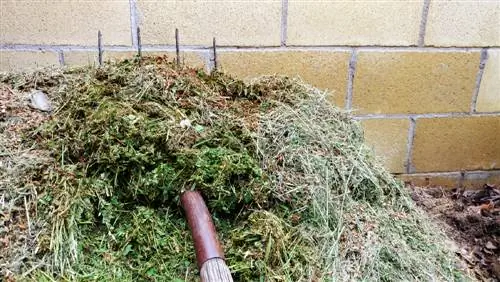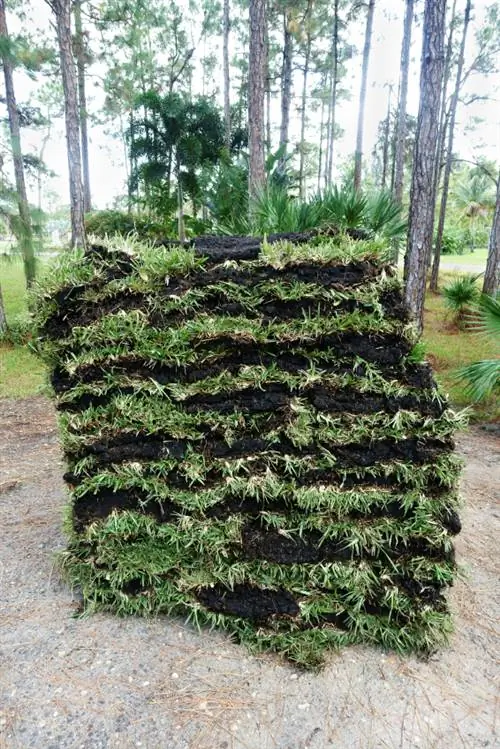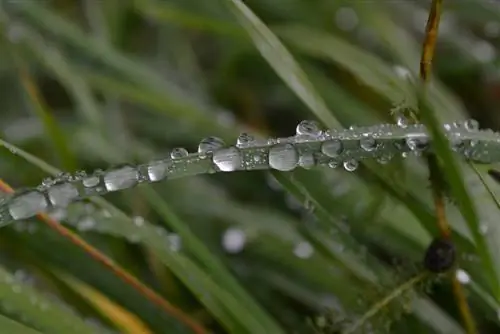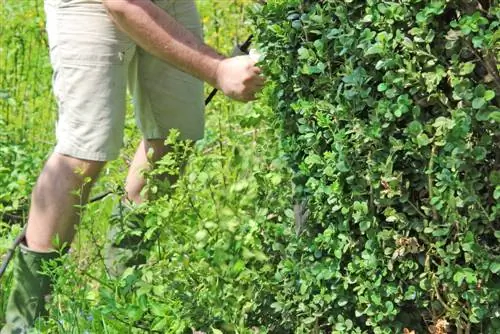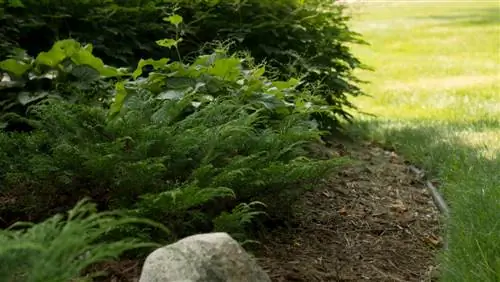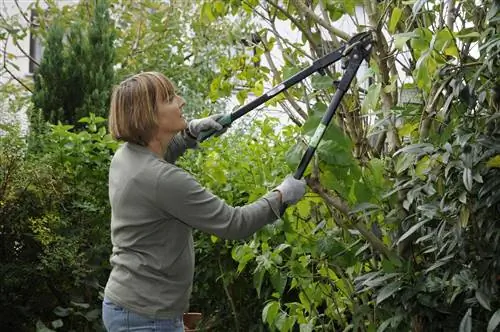- Author admin leonars@hobbygardeners.com.
- Public 2023-12-16 16:46.
- Last modified 2025-01-23 11:21.
When mowing the lawn, a lot of grass clippings are produced, depending on the size and length of the grass. Grass clippings make very good compost if you compost them correctly. Under no circumstances should you add large amounts of this waste to the compost at once without mixing it well.
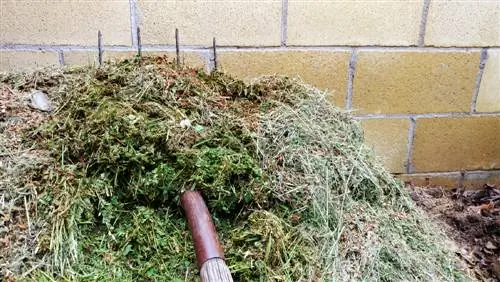
How do I compost lawn clippings correctly?
To properly compost lawn clippings, mix them with airy materials such as shredded shrubbery, dry leaves, or torn egg cartons. This ensures good ventilation and prevents the cut from becoming a wet, smelly mess.
Put lawn clippings on the compost heap
If you put all the grass clippings into the compost at once after mowing the lawn, it's often not just the compost heap that is full. The cut does not rot either, but rather develops into a wet, smelly mass.
This is because the grass clippings, which are usually very moist, prevent air circulation. As a result, the microorganisms and bacteria cannot decompose the material. The grass does not rot but begins to ferment.
You must therefore always mix grass cuttings with other airy materials before adding them to the compost.
Ensure good ventilation
So that the grass clippings do not form a solid mass, add coarser materials in between. Shredded shrubbery, for example from hedge trimming, is ideal.
It makes sense to always have a supply of chopped shrubs in the garden. Then you can mix and compost the lawn clippings after each mowing.
Other compostable material can also be used as an alternative, such as:
- small amounts of paper
- torn egg cartons
- wood wool
- dry leaves
It is important that the material is as dry as possible and not too small.
Composting lawn clippings with flowers and seeds
Unless you mow your lawn almost every day, it is inevitable that lawn weeds will develop. These begin to bloom and sometimes set seeds very quickly.
Nevertheless, you can also compost such lawn clippings. Most seeds are rendered harmless by hot rot. You don't have to worry about sowing unwanted plants with the compost.
However, this does not apply to the roots of couch grass and groundweed. These plants are so resilient that their roots are not killed in compost. If you use such compost later, you will inadvertently spread these “weeds.”
Tip
An alternative to mixing with other materials is to allow the grass clippings to dry before composting. As a result, the moisture is lost and the grass no longer prevents air circulation.

